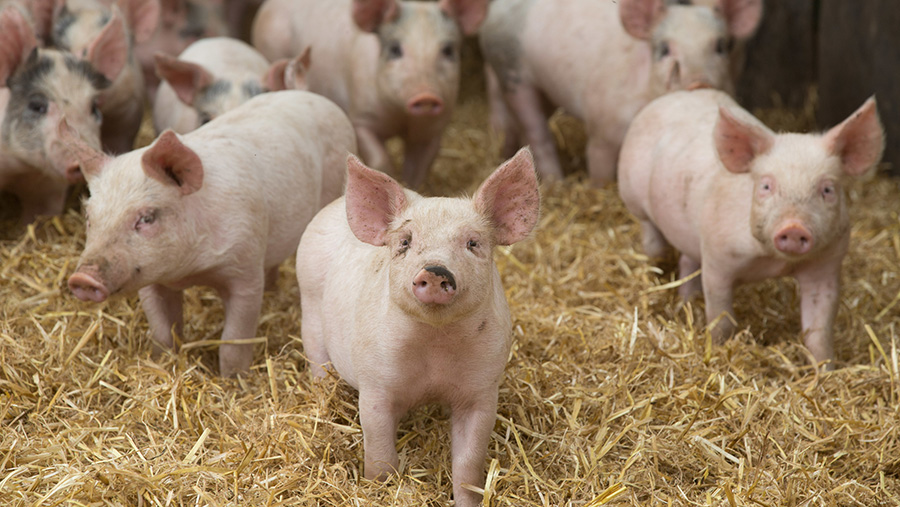Screening method developed to catch pig infertility mutation
 © Tim Scrivener
© Tim Scrivener Efforts to screen boars for a pig chromosome mutation that has a major effect on farrowing size through early embryonic loss have been bolstered by a new genetic screening device.
A University of Kent researcher has developed a screening method with industry groups after she discovered a genomic flaw that can reduce farrowing size by 50%.
Dr Rebecca O’Connor, School of Biosciences, worked with Cytocell and JSR Genetics to develop a more accurate and sophisticated screening system to identify the mutation, which occurs in about one in every 200 boars.
See also: Warthog genes copied to pigs for virus resistance
The technique puts blood cultures through an extra stage of screening to yield more accurate results, Dr O’Connor told Farmers Weekly.
“Breeders cannot tell whether a boar carried the mutation even when analysing semen samples,” said Dr O’Connor. “However, now the defect is one breeders can catch early through this test, at a higher, more accurate resolution than previously possible.”
The study was published in Animal Genetics and reported at the Pig Breeders Roundtable last month. It has been developed from a technique used in humans and transferred into livestock.
Dr O’Connor said affected pregnancies can lose 25-50% of piglets due to early loss as embryos. She added that, due to the nature of the condition, the mutation is dangerous because it can occur randomly as well as being heritable.
